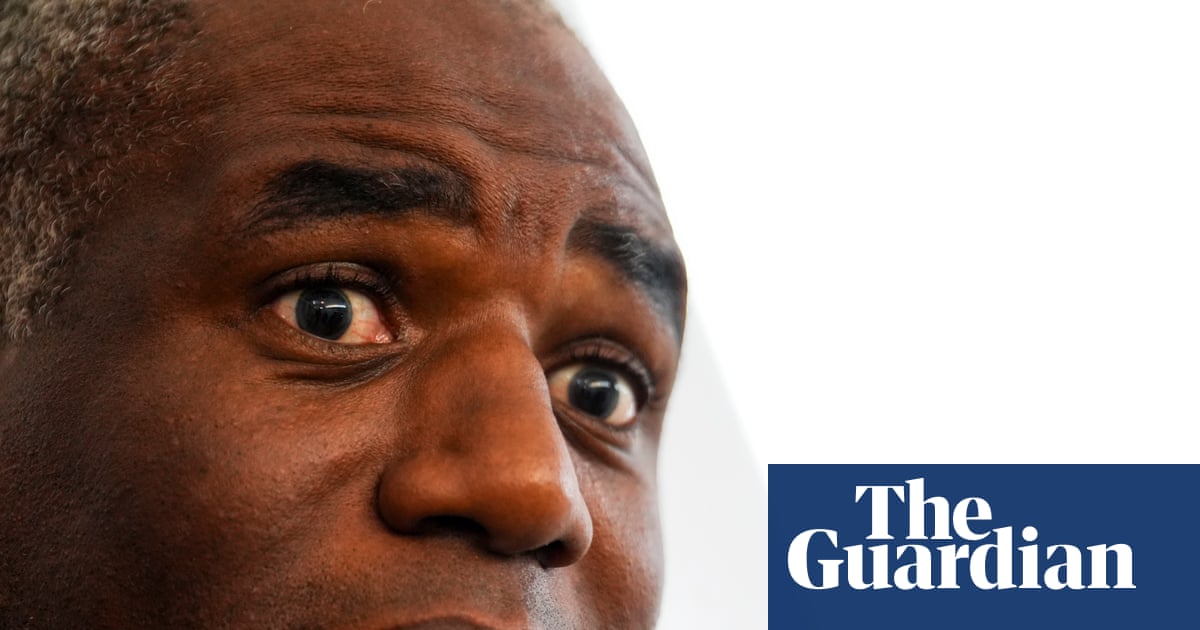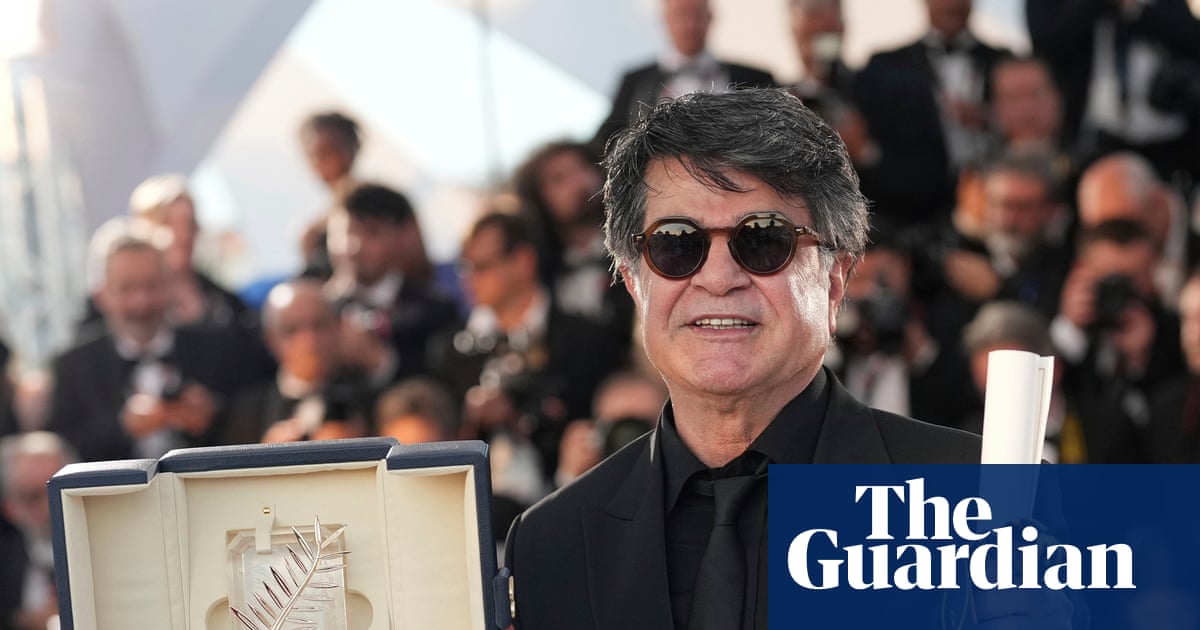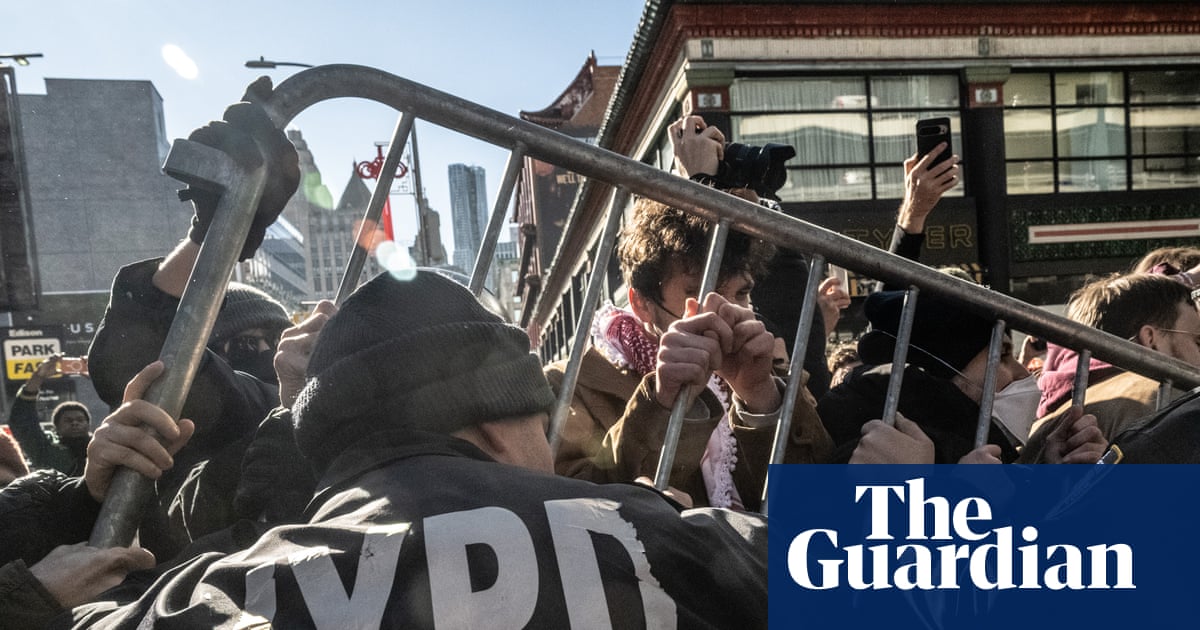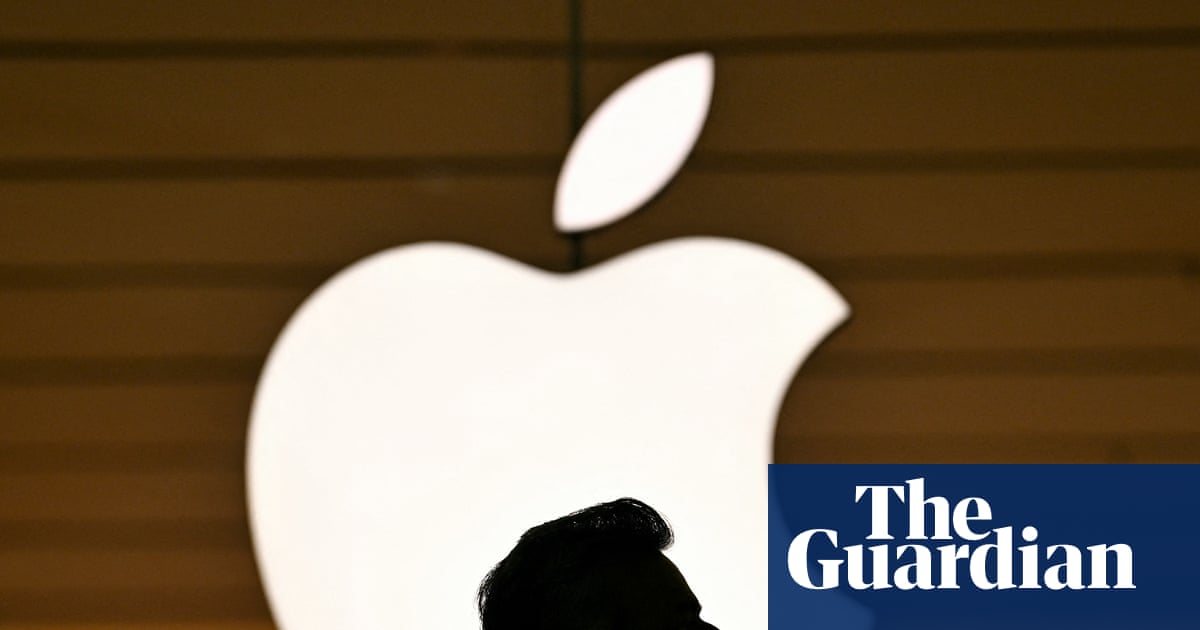Chipmaker Nvidia set a fresh sales record in the second quarter, surpassing Wall Street expectations for its artificial intelligence chips. But shares of the chip giant still dropped 2.3% in after hours trading, in a sign that investors’ worries of an AI bubble and the repercussions of Donald Trump’s trade wars are not quelled.
Nvidia’s financial report was the first test of investor appetite since last week’s mass AI-stock selloff, when several tech stocks saw shares tumble last week amid growing questions over whether AI-driven companies are being overvalued.
On Wednesday, Nvidia reported an adjusted earnings per share of $1.08 on $46.74bn in revenue, surpassing Wall Street’s projection of $1.01 in earnings per share on $46.05bn in revenue, according to Fact Set data.
But investors had high expectations for the company. Some of the market reactions may be to the slight misses in other parts of the company’s business, including data center revenue. Nvidia posted $41.1bn in data center revenue, missing the $41.3 billion Wall Street was expecting.
“Coming off a new rally to all-time highs, being merely on the mark in terms of revenue simply wouldn’t cut it for Nvidia this time around,” said Thomas Monteiro, senior analyst at Investing.com. “Saying the stock was priced for perfection would be an enormous understatement, as it was, in fact, in need of another massive beat.”
The company also said it has not assumed any shipments of its H20 chips to China in the outlook, referring to the chip primarily made for the China market. “Even though the numbers once again came out very solid – particularly driven by another masterclass in datacenter growth and extremely hot demand across the board – the reality is that without the much-needed push from H20 sales in China, Nvidia simply cannot sustain the type of growth priced into its valuation,” said Monteiro.
The company is projecting $54bn in revenue in the third quarter – which is within the range of Wall Street expectations – and said the board approved $60bn in additional stock buybacks – on top of nearly $24.3bn the company returned to shareholders in the first half of the year in both stock buybacks and cash dividends.
Founder and chief executive, Jensen Huang, said production of the company’s latest AI superchip, Blackwell, is “ramping at full speed, and demand is extraordinary.
“The AI race is on, and Blackwell is the platform at its center,” Huang said in a press release.
Still, executives are expected to face many questions, particularly about the future of its China business, in a call later on Wednesday.
Earlier this year, Trump banned AI chip sales in China, a move that resulted in a $4.5bn blow to Nvidia’s finances during its fiscal first quarter. In August, the company agreed to give the US government a 15% cut of its H20 chips to China in return for export licences. China, in turn, has voiced security concerns over the chips, and is ramping up production of its own domestic alternatives.
Before its deal with the US government, Huang projected the company would lose $8bn in the second quarter due to the ban on China chip sales.
Some analysts remain bullish on the so-called AI revolution, especially as major technology companies like Meta, Microsoft, Amazon and Alphabet are investing heavily in AI infrastructure.
“We are still in the early days of the AI revolution as the use cases are just starting to massively expand as more companies recognize the value creation being driven by a handful of tech companies,” said the Wedbush Securities analyst Dan Ives. Those companies include Nvidia, Ives said.

.png) 3 months ago
43
3 months ago
43

















































